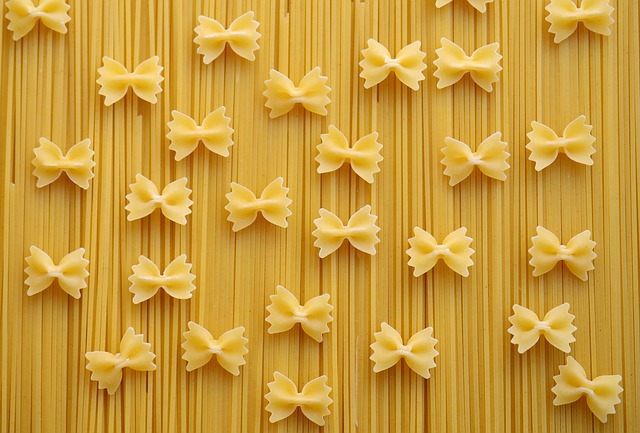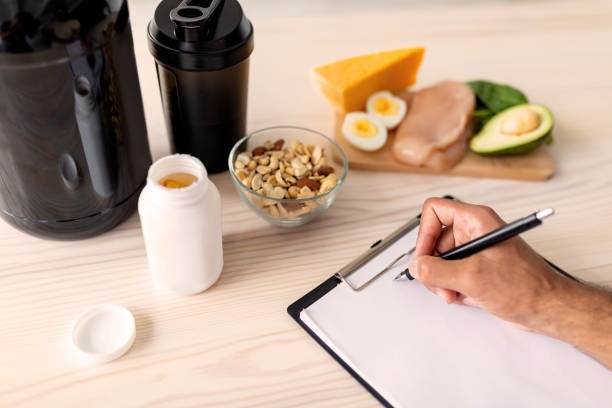Reasons why an athlete might follow a Gluten free diet can be due to a Diagnosis of Coeliac Disease. Coeliac disease is a lifelong auto-immune condition which is diagnosed via a Blood test and confirmed via a duodenal biopsy. Another reason might not be Coeliac disease but for some a Non Coeliac Gluten Intolerance – this condition leads to IBS (Irritable Bowel Syndrome) related symptoms where avoiding large quantities of wheat helps to alleviate symptoms. The other reason for following a gluten free diet might simply be athlete preference.
It is also important to consider that exercise, particularly endurance exercise can naturally affect blood flow to the gut and normal digestion leading to athletes developing gastro-intestinal symptoms. This does not necessarily mean that an athlete has an intolerance to a certain food and it can simply be the effect that exercise has on the body. In my work as a sports dietitian I always advise athletes to be cautious when eliminating whole food groups from their diet to manage gastro-intestinal symptoms. Without careful supervision this can lead to nutritional deficiencies and can affect performance.
A word on Intolerance Testing!
There are many kits available these days that ‘claim’ to identify if you are intolerant to certain foods as well as expensive tests analysing hair and blood for intolerances. My advice is.. Save your money! These kits are unreliable and are not evidence based. You will often be given a list as long as your arm of foods to avoid – I am confident the list will unreliably identify that you need to avoid Gluten and dairy foods – two key food groups!! You are likely to be given no advice on how to ensure your diet is balanced and meets your needs for health and well-being let alone to fuel your individual sport and recovery. A lot of these tests also claim to diagnose Allergies! Allergies are a serious auto-immune reaction to a food that can lead to serious symptoms – they are diagnosed under medical supervision only! If you are concerned whether you have a Food Intolerance, or an allergy speak to a Sports Dietitian or your medical practitioner and seek professional advice and guidance.

If you choose to follow a Gluten Free diet here are some Sports Dietitian Tips to ensure your diet is Nutritionally on point!
- Make sure you have a source of Carbohydrate (CHO) at each meal and that your total CHO intake is balanced or periodised against your training. There are a range of Gluten free breads and pasta available but there are also naturally Gluten free CHO based foods such as rice, quinoa, gluten free oats, chick pea pasta etc.
- Aim where possible to choose low fat and low GI (Glycaemic index CHO) foods. It is often a misconception that GF products are healthier. Shop bought GF products are often higher in fat and sugar than alternatives. The GI of a food is the rate at which it is broken down to simple glucose molecules. The aim is to choose lower GI foods as they are broken down slowly to glucose, keep your blood glucose levels stable and keep you fuller for longer which is great if you are aiming to improve your body composition. Good choices include Wild rice or brown rice, quinoa, basmati rice, high fibre Gluten free breads e.g. Helga’s soy and linseed, 5 grains or country life, buckwheat pasta and GF porridge oats.
- Ensure Balance at your meals at all times. Your meals should contain a source of CHO (for energy) Protein (for recovery) and fruit and vegetables (for vitamins and minerals). Non-processed protein foods such as lean meat, fish, cheese and yoghurt are all GF as are legumes, lentils nuts and seeds.
- If choosing processed foods always check the labels to see if the product contains gluten. Also look at how much fat and sugar are in the product. As a general rule of thumb products that are high in fat these days are labelled using the ‘traffic light system’ – red means a product is relatively high in fat, amber moderately high in fat and Green – low in fat.

What about Sports Foods?
There are many sports Foods that are naturally Gluten free but it’s important to check the labels or alternatively make your own. Skratch Labs feed zone portables is a useful resource. Other naturally containing Gluten free ‘fuelling foods’ include Bananas, Sports Beans, Nakd Bars, Bounce Bars e.g. Bounce energy ball, TREK bars (Berry burst), Bonk breaker energy bars, Picky bars e.g. Smooth caffeinator, Potatoes, Cliff nectar bar and medjool dates. Always check the label as products will vary based on the ingredients.
- Energy gels and Blocks are fine to consume (maltodextrin and glucose although derived from wheat – manufacturing removes the gluten.
- Carbohydrate -Electrolyte (energy drinks) – Always check the labels as waxy starches in the drinks are not GF.
Pay attention to Vitamins and minerals. Nutrients of note include Thiamine, folate, magnesium, calcium Vitamin A, Iron and Zinc. It is important if you are following a GF diet that you ensure that your diet is nutritionally balanced and contains the recommended nutrient intake of these vitamins and minerals. Accredited Sports Dietitians can offer you advice guidance and support to make sure if you are following a GF diet your diet is nutritionally balanced as well as able to support your individual goals as an athlete.


0 Comments